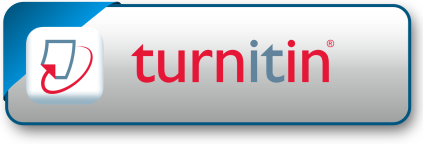ANALISIS EFEKTIFITAS PEMUNGUTAN PAJAK PARKIR PEMANFAATAN LAHAN MILIK PEMERINTAH KOTA TANGERANG SELATAN TAHUN 2020 SAMPAI DENGAN JUNI 2023
DOI:
https://doi.org/10.24853/swatantra.21.2.149-160Keywords:
Efektifitas, pajak parkirAbstract
Pemerintah Kota Tangerang Selatan dalam bidang perpajakan khususnya pajak parkir sebagai salah satu sumber penerimaan daerah untuk mendukung pelaksanaan otonomi daerah dan membiayai penyelenggaraan pemerintah. Pajak parkir melalui pemanfaatan lahan milik pemerintah Kota Tangerang Selatan merupakan jenis pajak yang dipungut sebagai sumber penerimaan daerah. Tujuan penelitian untuk mengetahui bagaimana tingkat efektivitas pajak parkir pemanfaatan milik pemerintah di Kota Tangerang Selatan. Penelitian dilakukan di Dinas Perhubungan dan Badan Pendapatan Kota Tangerang Selatan. Metode penelitian deskriptif kuantitatif, yaitu menganalisis data dan menghitung besarnya perolehan pajak disandingkan dengan nilai kontrak penyewa dari tahun 2020 sampai dengan Juni 2023. Hasil penelitian menunjukkan setiap tahun nilai sewa dan jumlah penerimaan pajak tidak terpenuhi secara keseluruhan. Pihak penyewa berjumlah 12 lahan yang menyewa lahan milik pemerintah Kota Tangerang Selatan. Dari hasil pajak yang diperoleh satupun tidak ada yang memenuhi target pendapatan sesuai nilai sewa yang dibayarkan. Sehingga perlu ada kajian dan pembahasan kembali antara Dinas Perhubungan dengan pihak penyewa untuk melakukan perhitungan ulang terhadap penetapan target pemungutan Pajak Parkir agar sesuai denga potensi rill yang dimiliki.References
Peraturan Walikota Tangerang Selatan Nomor 02 Tahun 2020 tentang Tata Cara Pengelolaan Pajak Parkir;
Peraturan Walikota Tangerang Selatan Nomor 12 Tahun 2020 tentang Tata Cara Sewa Barang Milik Daerah
Malombeke, Novelia. "Analisis potensi dan efektivitas pemungutan pajak parkir di Kabupaten Minahasa Utara." Jurnal EMBA: Jurnal Riset Ekonomi, Manajemen, Bisnis dan Akuntansi 4.1 (2016).
Kesek, Feisly. 2013. Efektivitas Dan Kontribusi Penerimaan Pajak Parkir Terhadap Pendapatan Asli Daerah Kota Manado. E-journal UNSRAT. http://ejournal.unsrat.ac.id/index.php/emba/search/results. Diakses 14 Maret, 2016. Hal.1922-1933.
Khairani. 2012. Analisis Kontribusi Pajak Parkir Terhadap Pendapatan Asli Daerah Kota
Madiasmo. 2013. Perpajakan. Edisi revisi. Salemba Empat. Jakarta.
Mahmudi. 2010. Analisis Laporan Keuangan Pemerintah Daerah. Sekolah Tinggi Ilmu Manajemen.
Yogyakarta.
Peraturan Daerah Kota Tangerang Selatan Nomor 3 Tahun 2017 tentang Perubahan atas Peraturan Daerah Nomor 7 Tahun 2010 tentang Pajak Parkir;
Pemerintah Republik Indonesia. 2007. Undang- Undang Nomor 28 Tahun 2007, Tentang Ketentuan Umum dan Tata Cara Perpajakan1. Jakarta.
Sari, Diana. 2013. Konsep Dasar Perpajakan. Refika Aditama. Bandung.
Siahaan, Marihot P. 2013. Pajak Daerah dan Retribusi Daerah. Cetakan ketiga. Rajawali Pers,. Jakarta. Sugiyono. 2010. Metode Penelitian Kuantitatif Kualitatif dan RND. Alfabeta. Bandung.
Widyaningsih, 2011. Hukum Pajak dan Perpajakan. Alfabeta-Cp. Bandung.
Downloads
Published
Issue
Section
License
Copyright aims to protect the specific way the article has been written to describe an experiment and the results. SWATANTRA is committed to its authors to protect and defend their work and their reputation and takes allegations of infringement, plagiarism, ethical disputes, and fraud very seriously. SWATANTRA is published under the terms of the Attribution-NonCommercial 4.0 International (CC BY-NC 4.0). Authors retain copyright and grant the journal right of first publication (online and print) with the work simultaneously. We use the restrictive license (non-commercial) as follows:
BY (attribution): Users are allowed to share, distribute and redistribute the published article in any medium or format, with an identification of the authors and its initial publication in this journal. Authors are encouraged to post and distribute their articles immediately after publication (e.g., institutional or public repositories, personal websites). Authors are allowed to enter into additional contractual arrangements for the non-exclusive distribution of the published and an acknowledgment of its initial publication in this journal.
NC (non-commercial): Users are not allowed to use the article commercially without the permission of the authors. Authors agree explicitly that the published article is indexed worldwide in databases, repositories, and indexation services, even if these services operate on a commercial basis. Authors grant SWATANTRA explicit the right to include the published articles in databases, repositories, and indexation services. You can see examples of personal and commercial use on this link.
Below you may find the full text of the license signed by authors.
License
- License to Publish
The non-commercial use of the article will be governed by the Attribution-NonCommercial 4.0 International (CC BY-NC 4.0). The author hereby grants SWATANTRA an exclusive publishing and distribution license in the manuscript include tables, illustrations, or other material submitted for publication as part of the manuscript (the “Article”) in print, electronic, and all other media (whether now known or later developed), in any form, in all languages, throughout the world, for the full term of copyright, and the right to license others to do the same, effective when the article is accepted for publication. This license includes the right to enforce the rights granted hereunder against third parties.
- Author’s Warranties
The author warrants that the article is original, written by stated author/s, has not been published before, contains no unlawful statements, does not infringe the rights of others, is subject to copyright that is vested exclusively in the author and free of any third party rights, and that any necessary written permissions to quote from other sources have been obtained by the author(s).
- User Rights
Under the Creative Commons Attribution-Non Commercial 4.0 International (CC BY-NC 4.0) license, the author(s) and users are free to share (copy and redistribute the material in any medium or format) and adapt (remix, transform, and build upon the material). Users must give appropriate credit, provide a link to the license, and indicate if changes were made.
- Rights of Authors
Authors retain the following rights:
- Copyright, and other proprietary rights relating to the article, such as patent rights,
- The right to use the substance of the article in future own works, including lectures and books,
- The right to reproduce the article for own purposes, provided the copies are not offered for sale, and
- The right to self-archive the article.
- Co-Authorship
If the article was prepared jointly with other authors, the signatory of this form warrants that he/she has been authorized by all co-authors to sign this agreement on their behalf, and agrees to inform his/her co-authors of the terms of this agreement.








